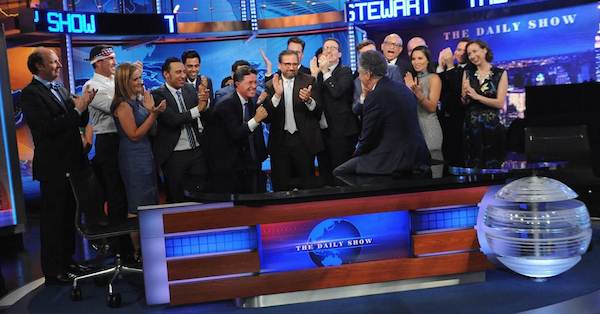review: the end of The Daily Show with Jon Stewart – which celebrity departure would affect you most?
Jon Stewart took over The Daily Show in 1999, the year I graduated high school. (I was a fan even before, of the sillier Craig Kilborn version). Since then, I think I’ve barely missed an episode. In college, he was our nightly news, a break from studying. Since then — and my acquisition of a DVR — he became a dinnertime companion, watching his take on the previous day’s news over a meal, catching up even on the days we missed because his service was so invaluable.
His show made current events engaging, and more importantly made our problems palatable.Through the difficult Bush years, he offered catharsis. Through the bizarre upheavals of the Obama years, he offered a voice of reason. And always intelligence, always laughter.
Thinking about his departure, I don’t know if there’s a single other person in entertainment I’ve spent as much time with as Jon Stewart. (Maybe The Simpsons, but that isn’t quite the same.) Leading up to his final show, I felt a strange clenching in my chest. It wasn’t sadness, like you’re preparing for a loss. At least not only that. The closest comparison I can make is saying goodbye to someone you loved in high school. They’re always going to be a part of your life. In many ways they helped make you who you are. But now it’s time to move on, and you both know it. You may see each other again some day, but it’ll be different. But that’s okay. The time you had was unforgettable. Invaluable. And you leave with a little bit of dread, but also gratitude. Grief, but also joy.
Which celebrity have you spent the most time enjoying? Why them? How did they affect your life?
If any current celebrity suddenly went away, which one would be the biggest loss, the biggest blow to your life, would leave the biggest hole?
For me it’s Jon Stewart, and there might never be another one bigger.
Thanks Jon.

